22nd SEPTEMBER 1931 MAHATMA GANDHI MEET CHARLIE CHAPLIN IN LONDON
“Charlie Chaplin meets Gandhi”–Daily Metta
May 12
 “If God ever sent me to the West, I should go there to penetrate the hearts of the masses, to have quiet talks with the youth (…) and have the privilege of meeting kindred spirits–lovers of peace at any price save that of truth.”
“If God ever sent me to the West, I should go there to penetrate the hearts of the masses, to have quiet talks with the youth (…) and have the privilege of meeting kindred spirits–lovers of peace at any price save that of truth.”
–Gandhi ( Mahatma, vol II, p. 417)
In his day, Gandhi had fans all over the world–from political leaders (often in spite of themselves) to movement leaders worldwide, to authors and poets, world-famous educators, to even actors and actresses. Among those who wrote, requesting an audience with Gandhiji, Charlie Chaplin was one of the most notable–and Gandhi had not even heard of him! When he learned of Chaplin’s request to meet during his 1931 stay in England, the people around him had to first of all explain who Charlie Chaplin was! “He’s a famous actor, Bapu.” Gandhi replied that he did not have time to meet with him, and someone, knowing the depth of Chaplin’s radicalism, spoke up, “He’s sympathetic to our cause!” “In that case,” Gandhi replied, “I will meet with him.”
 Chaplin recalls walking up the steps to the flat on the East End of London where Gandhi was staying. He was nervous, and rehearsed his lines (he was an actor, after all), and approached him: “I am all for the freedom of your country and its people. But there is one thing that I don’t understand. Why do you oppose the use of machines? Don’t you think that a lot of work would come to a standstill if machines are not used?”
Chaplin recalls walking up the steps to the flat on the East End of London where Gandhi was staying. He was nervous, and rehearsed his lines (he was an actor, after all), and approached him: “I am all for the freedom of your country and its people. But there is one thing that I don’t understand. Why do you oppose the use of machines? Don’t you think that a lot of work would come to a standstill if machines are not used?”
Gandhi responded frankly,
“I am not against machines but I cannot bear it when these very machines take away a man’s work from him. Today we your slaves because we cannot overcome our attraction, for your goods. Freedom will surely be ours if we learn to free ourselves from this attraction.”
It was in 1940 that Chaplin released his famous “The Great Dictator,” a film in itself that offered nonviolent resistance to Hitler’s aura of power. The final soliloquy of the film certainly sounds like influence from the Mahatma! Check it out.
Experiment in Nonviolence:
Write down a question you would ask Gandhi, and research what he might say as a response.
The Man 'Charlie' Wanted to Meet
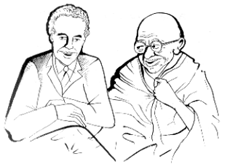 If you have found it difficult to control your laughter while watching his films then the name 'Charlie Chaplin,' must be very familiar to you. Chaplin had the inimitable quality of putting a smile even on a sad face. People of all ages would lovingly call him 'Charlie'. He would himself write the story of his films apart from directing and acting in them. Charlie had lived a major part of his life in poverty. He had achieved stardom after a tough struggle. Despite his British origin Charlie admired Gandhi a great deal. He supported Gandhi's cause wholeheartedly, and genuinely felt that the 'British' should leave India.
If you have found it difficult to control your laughter while watching his films then the name 'Charlie Chaplin,' must be very familiar to you. Chaplin had the inimitable quality of putting a smile even on a sad face. People of all ages would lovingly call him 'Charlie'. He would himself write the story of his films apart from directing and acting in them. Charlie had lived a major part of his life in poverty. He had achieved stardom after a tough struggle. Despite his British origin Charlie admired Gandhi a great deal. He supported Gandhi's cause wholeheartedly, and genuinely felt that the 'British' should leave India.In those days London was abuzz with tension and excitement. It was because of the Round Table Conference organised by the British Government. The conference was attended by leaders of all the important political parties of India which included both minority and majority parties and representatives of various castes and religions. A group of bejeweled Rajas, Maharajas and Nawabs of princely states was present for the conference. Gandhi too was present there. All the important newspapers had sent their correspondents to cover this important event.
Charlie too was in London at that time. He decided to make use of this opportunity to meet Gandhi. He wrote a letter to Bapu expressing a keen desire to see him. Gandhi was a very busy man. It was not humanly possible for him to meet everybody. And the situation was such that everybody wanted a few minutes of his time.
After reading Chaplin's letter he asked one of his companions, "Who is this Charlie Chaplin?" He said, "Bapuji he is a well known film actor." To this, Gandhi laughed and said, "Films are not my cup of tea so what could I have in common with films and film actors? Please write a letter to him explaining my inability to meet him due to lack of time." Bapu's companion then said, "Charlie Chaplin is sympathetical towards our freedom movement. He believes that the British should free India." After hearing this, Gandhi replied, "In that case I would certainly like to meet him."
Bapu was staying in a two storeyed house in one of the localities of the East End of London. A meeting had been arranged for Charlie and Gandhi. This was the moment that Chaplin had been waiting for. Finally, he had got a chance to meet Gandhi and talk to him. His heart was pounding as he climbed the stairs. "But what would I say to him," thought Charlie. He knew that Gandhi would not have watched his films. Therefore it was useless talking to him on that subject. Rehearsing his lines like an actor (which he already was) he entered Gandhi's room. After enquiring about his health Charlie said Gandhi, "I am all for the freedom of your country and its people. But there is one thing that I don't understand. Why do you oppose the use of machines? Don't you think that a lot of work would come to a standstill if machines are not used." Gandhi, then replied, "I am not against machines but I cannot bear it when these very machines take away a man's work from him. Today we your slaves because we cannot overcome our attraction, for your goods. Freedom will surely be ours if we learn to free ourselves from this attraction.
Harish Chandra Pant
Listen to Chaplin’s speech with Gandhi’s vision in mind.
 Daily Metta 2015, a service of the Metta Center for Nonviolence, is a daily reflection on the strategic and spiritual insights of Mahatma Gandhi in thought, word and deed. As Gandhi called his life an “experiment in truth,” we have included an experiment in nonviolence to accompany each Daily Metta. Check in every day for new inspiration. Each year will be dedicated to another wisdom teacher.
Daily Metta 2015, a service of the Metta Center for Nonviolence, is a daily reflection on the strategic and spiritual insights of Mahatma Gandhi in thought, word and deed. As Gandhi called his life an “experiment in truth,” we have included an experiment in nonviolence to accompany each Daily Metta. Check in every day for new inspiration. Each year will be dedicated to another wisdom teacher. By: Stephanie Van HookAs the Executive Director at Metta Center, Stephanie Van Hook is also the author of Daily Metta and host of Peace Paradigm Radio. Additionally, she is an educator at Red Barn Montessori in Petaluma, CA. Stephanie spends her free time walking, weaving, knitting and reading.
By: Stephanie Van HookAs the Executive Director at Metta Center, Stephanie Van Hook is also the author of Daily Metta and host of Peace Paradigm Radio. Additionally, she is an educator at Red Barn Montessori in Petaluma, CA. Stephanie spends her free time walking, weaving, knitting and reading.

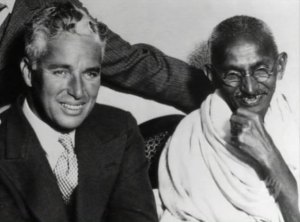
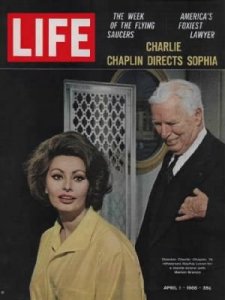
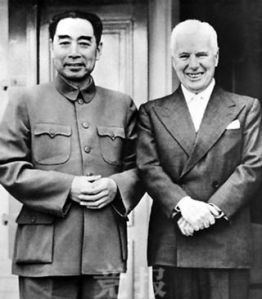
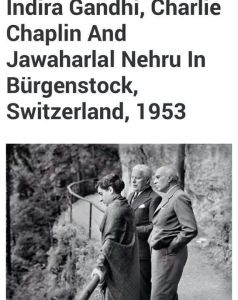
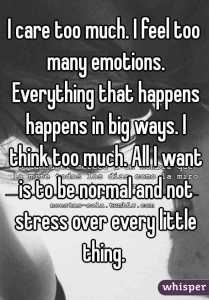
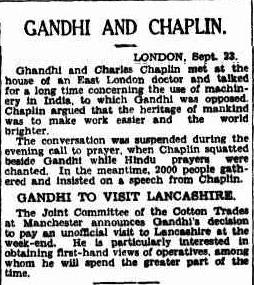
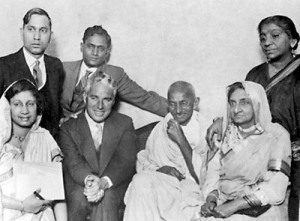
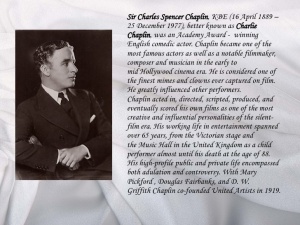
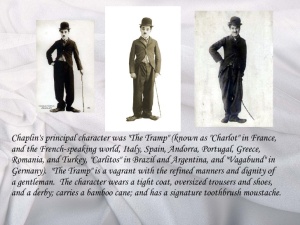
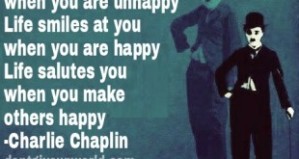
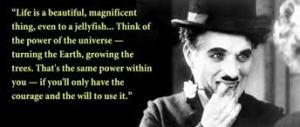
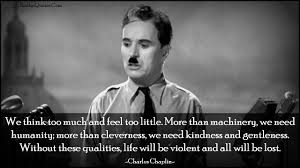
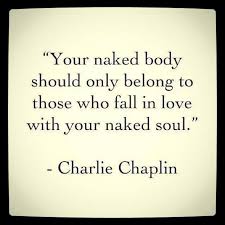
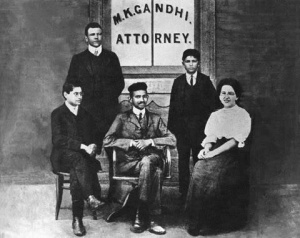
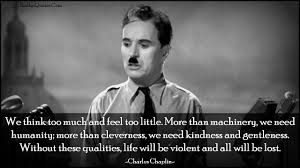

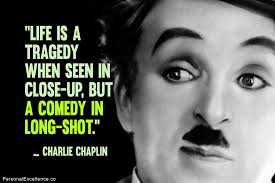
Leave a Reply
Search Results
Charlie Chaplin meets Gandhi - YouTube
"Charlie" Meets Gandhi - British Pathé
"Charlie" Meets Gandhi (1931) - YouTube
When Chaplin Met Gandhi trailer - YouTube
"Charlie" Meets Gandhi - British Pathé
Gandhi Et Charlot Aka Chaplin Visits Gandhi, London, 1931 ...
"Charlie" Meets Gandhi - British Pathé
Gandhi Et Charlot Aka Chaplin Visits Gandhi, London, 1931 ...
Gandhi Et Charlot Aka Chaplin Visits Gandhi, London, 1931 ...
MEET - Charlie Chaplin - YouTube
Search Results
Charlie Chaplin meets Gandhi - YouTube
Charlie Chaplin and Mr Gandhi | The Newham Story
BBC - Radio 4 Making History - Gandhi and Chaplin
Charlie' Wanted to Meet - Students' Projects : Gandhi's ...
"Charlie Chaplin meets Gandhi"-Daily Metta - Metta Center ...
Maddy's Ramblings: When Gandhiji met Chaplin
"Charlie" Meets Gandhi - British Pathé
Gandhi and Charlie Chaplin. A Famous Meet in Canning ...
Charlie Chaplin meets Gandhi for salt at IHC theatre fest ...
When Charlie Chaplin Met Gandhi | Phactual